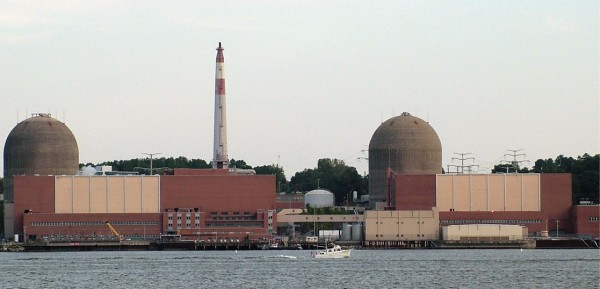DEC hearings address forced outages at Indian Point
The latest round of state hearings examining Indian Point Energy Center”™s application for the necessary environmental documentation to continue operating started Sept. 14.
The hearings, overseen by the state Department of Environmental Conservation, focus on how to mitigate the impacts on the Hudson River from the use of its water to cool the Buchanan-based nuclear power plant”™s two reactors, or whether to do anything at all. The plant takes in billions of gallons of Hudson River water a day and its opponents say millions of fish are killed each year during that process, especially during the summer spawning months.
Alternatives to keep fish from being killed will be considered at the hearing including forcing the plant to close annually during a portion of the summer, installing wedgewire screens to keep fish out of the water intake pipes and installing two water cooling towers.
 Compared with wedgewire screens, the outages and the installation of cooling towers would be costly. The latter could take 15 years to build, according to Entergy Corp., the company that owns Indian Point.
Compared with wedgewire screens, the outages and the installation of cooling towers would be costly. The latter could take 15 years to build, according to Entergy Corp., the company that owns Indian Point.
Jerry Nappi, an Entergy spokesman, said “the need for clean, reliable, lower-cost power is at a premium” during the summer months when the outages are proposed.
“According to written testimony submitted by NYS DEC staff”™s own expert witnesses, forced summertime outages will pass significant costs onto consumers, upwards of billions of dollars, for increased expenditures and replacement power costs,” Nappi said.
The DEC and Riverkeeper, an environmental group, have proposed different outage spans that range from 42 days and 92 days for both reactors between May 10 and Aug. 10.
Riverkeeper officials said outages are not a new concept for the plant and therefore are a viable option.
Con Edison used to own the plant and implemented outages. Entergy bought Unit 3 and Unit 2 in 2000 and 2001, respectively.
The hearings have been allotted three weeks, ending Oct. 2, at the DEC building in Albany.
Indian Point must acquire a water quality certificate and an anti-pollution permit from the state in order to complete the license renewal process ongoing with the Nuclear Regulatory Commission, a federal agency, since 2007. License renewals allow nuclear power plants to continue operating for 20 years at a time.
Indian Point has two active reactors: Unit 2 went online in 1973 and its license expired in September 2013; Unit 3 was licensed in 1975 and is set to expire this December.